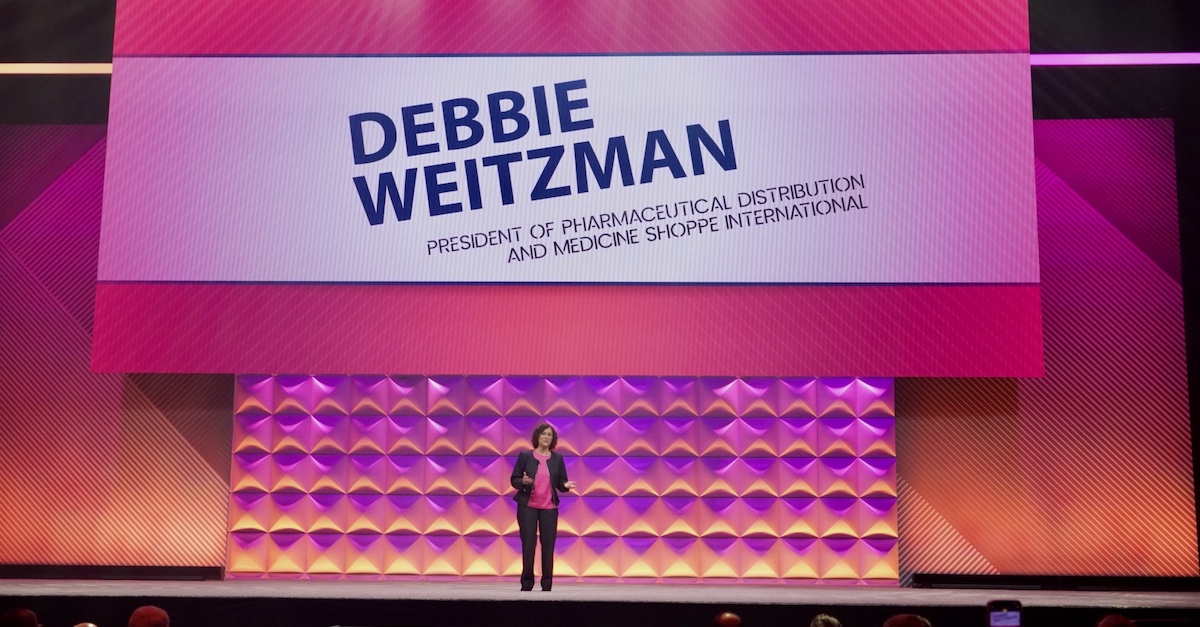Cardinal Health MarketSM
The legacy Cardinal.com Medical Ordering site has been replaced with Cardinal Health MarketSM, a new product experience designed with you in mind.

By Debbie Weitzman, president of Pharmaceutical Distribution and Medicine Shoppe International
This week, we are celebrating retail independent pharmacies and their commitment to patient care and community wellness at Cardinal Health’s 30th Retail Business Conference (RBC) in Las Vegas. Since we last gathered in person for RBC in 2019, we’ve seen a rapid adoption of innovation in health care. From telehealth appointments to cutting-edge technology like wearable sensors used to improve health outcomes, digital advancements are happening so fast that a life-changing innovation one day becomes an expectation the next day.
The Fourth Industrial Revolution
The rapid rate of change driven by technology is creating what some call the Fourth Industrial Revolution. A term introduced in 2016 by Klaus Schwab, founder and executive chairman of the World Economic Forum, it’s a way of talking about how the boundaries between the physical, digital, and biological worlds are blurring. In the Fourth Industrial Revolution, disruptive technologies and trends like artificial intelligence (AI), robotics, smart sensors and augmented reality are changing the way we live, work and interact with each other. Whether we are customers, employees or business owners, we now have the ability to combine elements of the digital and physical worlds to develop highly personalized and relevant experiences.
For example, we can order and pay for something online, and then pick it up in a brick-and-mortar store. We can schedule a health care appointment online, then visit the physical pharmacy for the appointment. For the customer to have a positive experience, the digital and physical experiences must work together seamlessly.
Evolving patient demands
Today, consumers have high expectations for technology in their everyday lives. They can track details about every workout, try on eyeglasses virtually, and buy a car online to be delivered directly to them. Consumers want to have the option to do just about anything online, and that includes using technology to better meet their health care needs.
A recent McKinsey & Company Consumer Pulse survey shows that three out of four consumers are now engaging in omnichannel activity, which means taking advantage of both online opportunities and physical ones. Consumers want the option that is most convenient for them in the moment. This can include choosing between an in-person or a telehealth consultation or shopping on-line or in-store. Orchestrating these different options, experiences and touchpoints to help patients access more convenient care – and combining high-tech solutions with high-touch care – will ensure independent pharmacists remain viable and competitive.
Not every need will be met with a digital solution. In fact, what makes pharmacists so valuable to their communities is the frequent face-to-face interactions they have with their patients. Patients know their pharmacists, and they trust them as their health care providers.
Of course, how each pharmacist uses technologies, and how they respond to evolving consumer expectations ultimately depends on what makes sense for them, their business and their community.
The future is here – and we are only beginning to see the possibilities ahead for pharmacists and for their patients.
As president of Cardinal Health Pharmaceutical Distribution and The Medicine Shoppe International, Inc., Debbie Weitzman is responsible for distribution to thousands of pharmacies across the care continuum, from retail and hospital pharmacies to long-term care and community health center pharmacies. Her team is helping to solve the most pressing challenges facing pharmacies with the development of scaled solutions and services.
Weitzman has extensive international experience: She previously served as the senior vice president and general manager of Cardinal Health Puerto Rico, responsible for sales and distribution operations for pharmaceutical products, medical-surgical products, hospital pharmacy management and logistics services in Puerto Rico and Latin America.
She has a passion for diversity, equity and inclusion and serves as the executive sponsor for ¡Hola!, an employee resource group for Hispanic and Latinx employees. Weitzman also serves on the Board of Directors for the National Association of Chain Drug Stores, and is a delegate with the National Association of Wholesalers. She earned her bachelor’s degree in history from Dartmouth College and a master’s degree from Kellogg Graduate School of Management at Northwestern University.